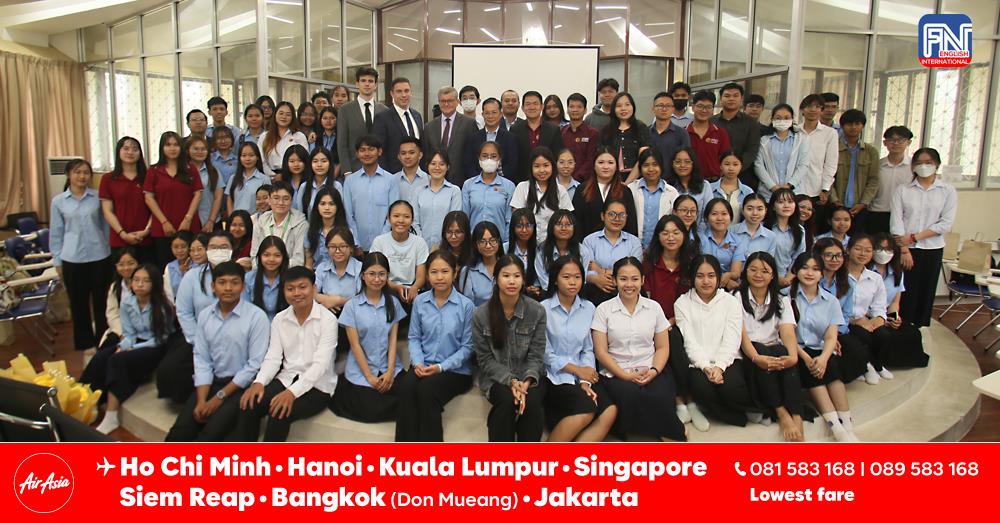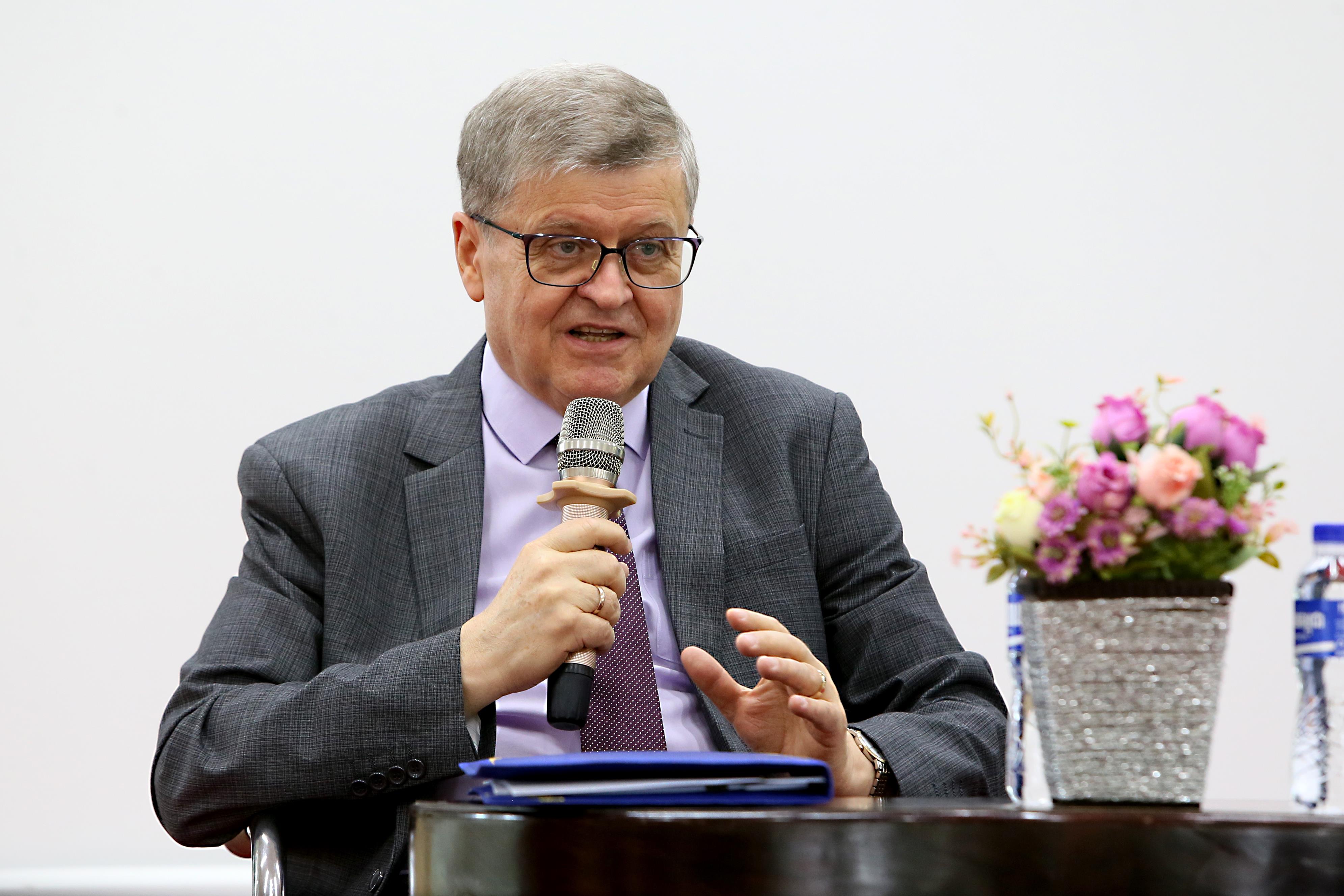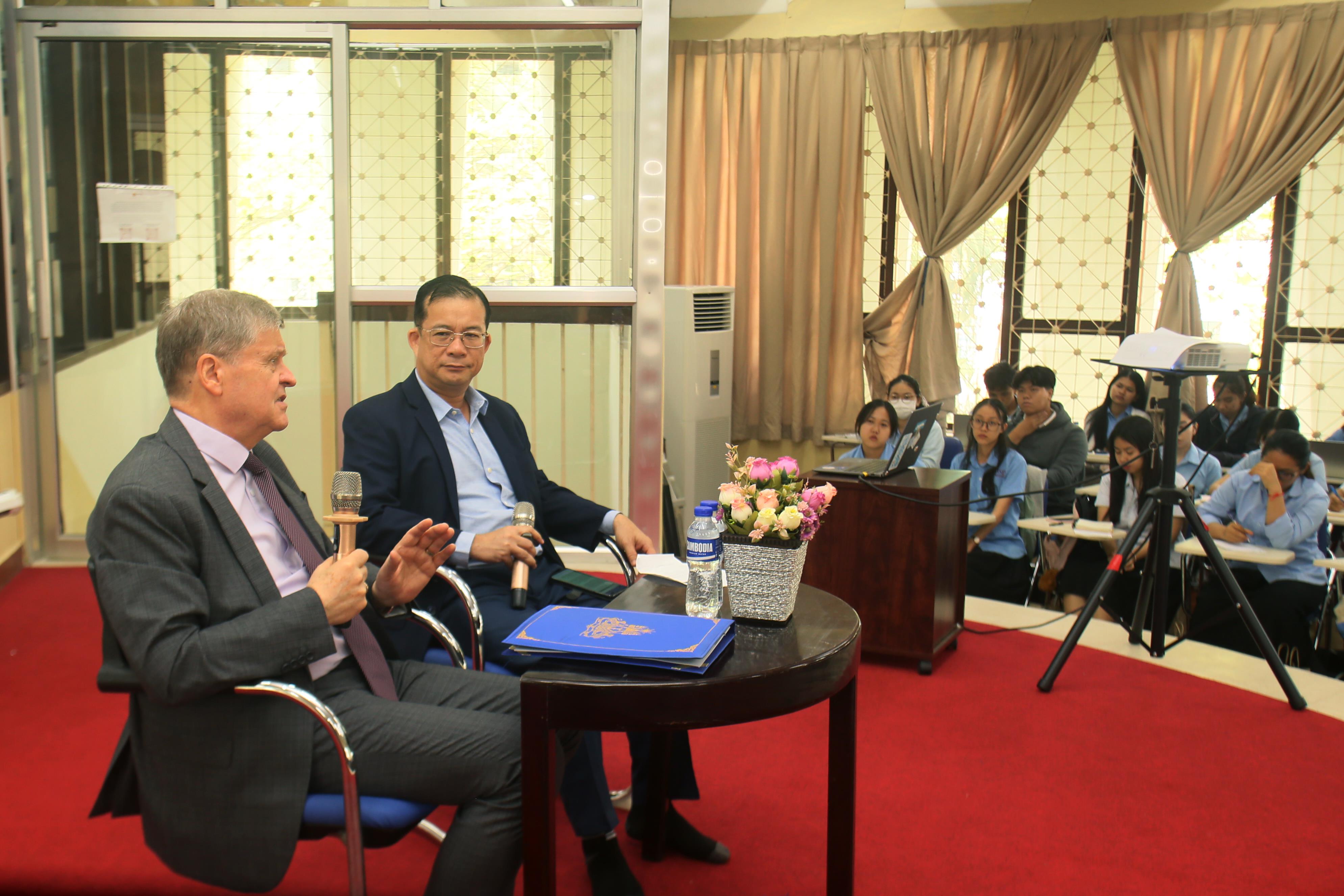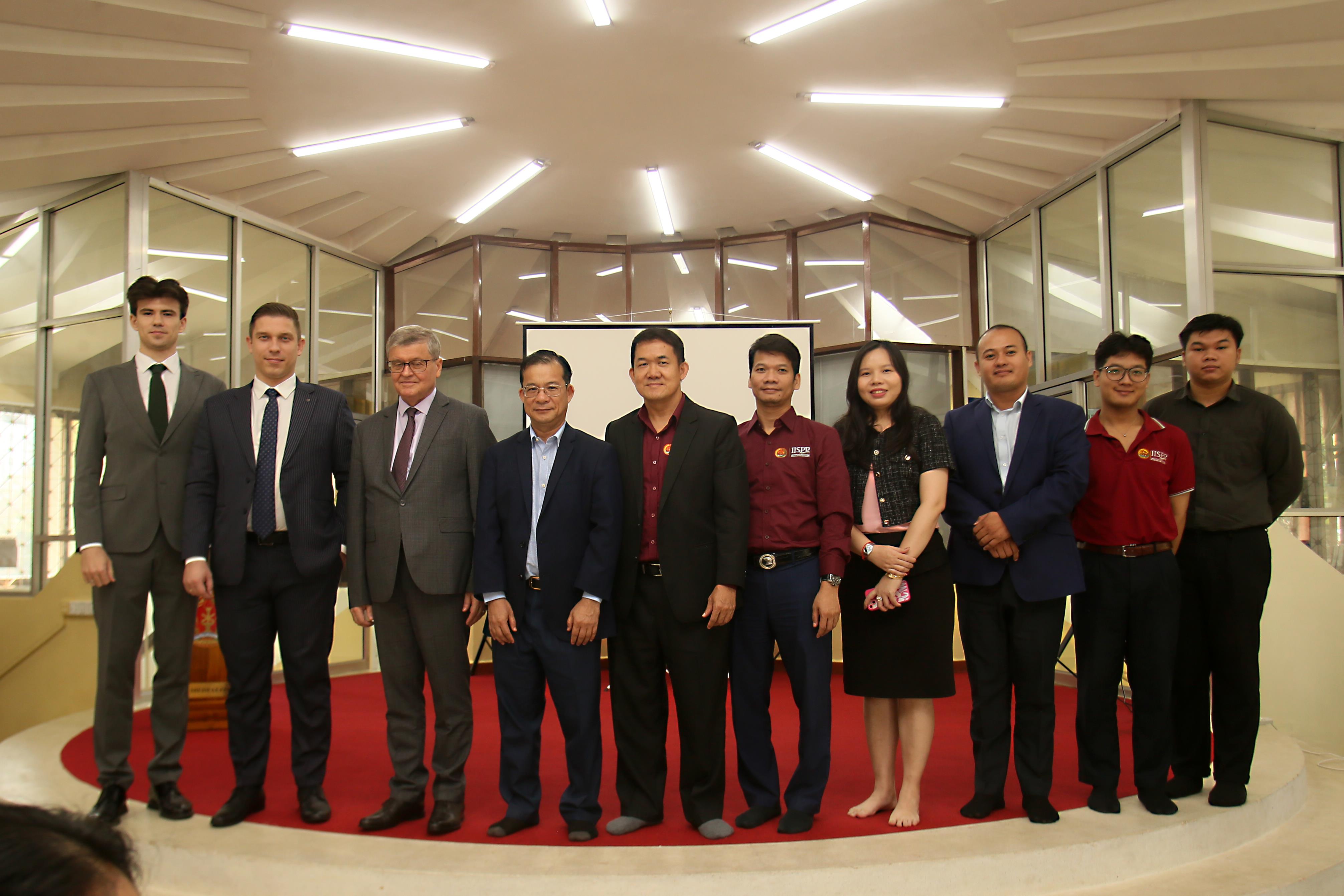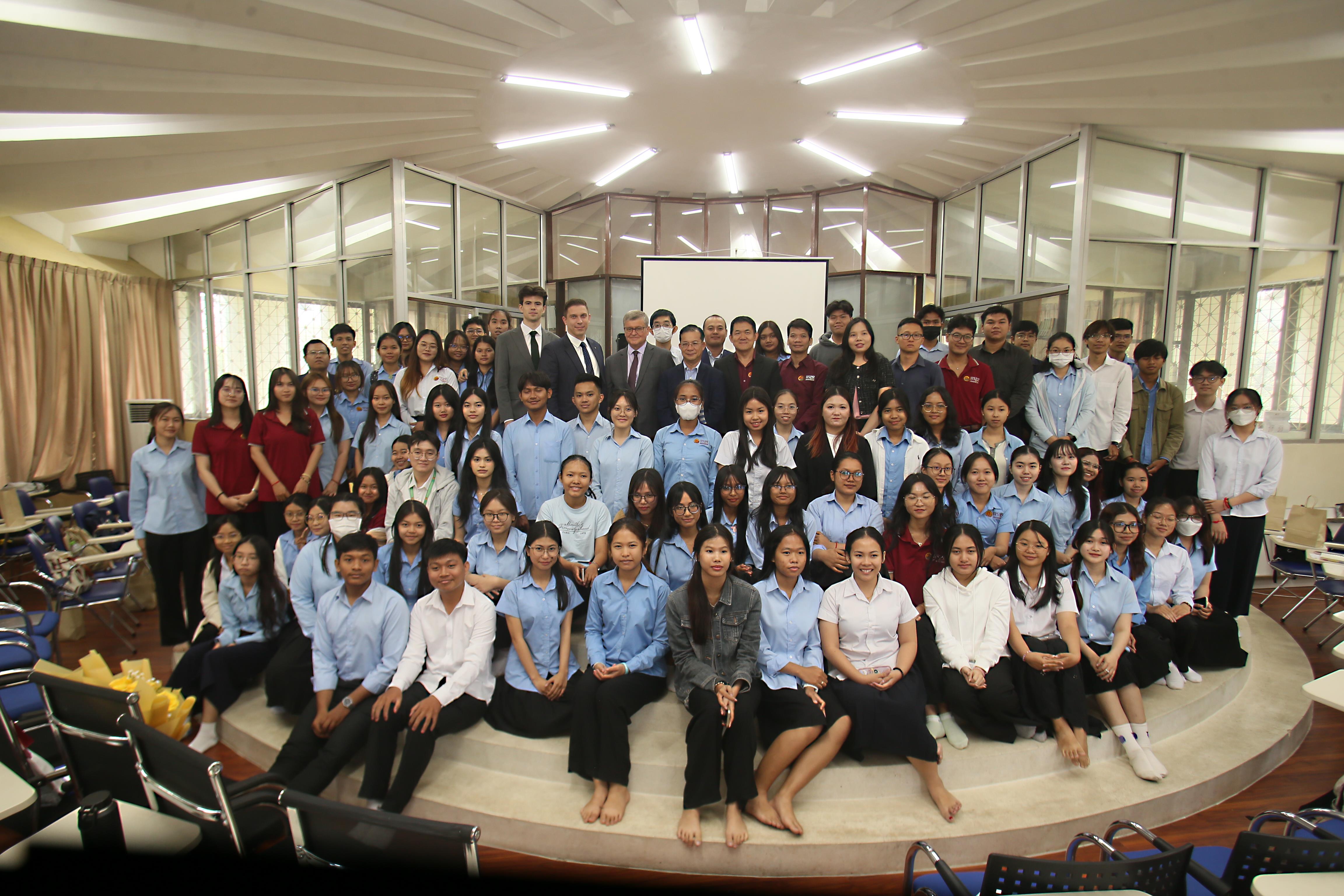Phnom Penh (FN), Feb. 19 – Anatoly Borovik, Ambassador of the Russian Federation to Cambodia, gave a public lecture on “Russia’s Strategy in the Asia-Pacific Region” at the Royal University of Phnom Penh on Tuesday (Feb. 18).
The lecture was attended by Neak Chandarith, Director of Institute for International Studies and Public Policy, and students.
At the beginning of the lecture, Ambassador Anatoly Borovik discussed the shift from a Western-dominated world order to a multipolar one, highlighting the historical impact of colonialism and modern geopolitical tensions.
“I would like to draw your attention to the fact that it was the US and the EU that, on the eve of Russia’s special military operation in Ukraine, rejected our proposal to build a new mutually acceptable security architecture in the world, which also implied NATO’s refusal to expand to the east to Russia’s borders,” said the ambassador. He also argued that NATO's expansion and military alliances like AUKUS and QUAD undermine ASEAN’s role and regional stability. Russia supports a multipolar world based on equality, cooperation, and international law, advocating for BRICS, the UN, and other non-Western alliances as key platforms for global governance.
In his speech, the ambassador also called for strengthening the UN’s role and adapting it to reflect the interests of the Global South.
The ambassador continued that, “For Russia, supporting the Asia-Pacific approach aligns with its broader vision of a multipolar world, where no single power dictates global affairs. Russia seeks to reinforce ASEAN’s role as a neutral mediator in regional politics and strengthen economic ties with Asia-Pacific nations through initiatives such as the Greater Eurasian Partnership.”
“Russia is building cooperation with ASEAN on the principle of recognizing the central role of the Association in the affairs of the region, supporting its unity and values,” the ambassador underlined.
He added that Russia actively interacted with ASEAN within the framework of the East Asia Summit, ARF, "ADMM Plus". All of these are key elements of the multilateral system of Asian-Pacific security. Joint projects in the field of trade, sustainable development, digital and creative economy are being implemented. Russia remains a responsible exporter of agricultural products and fertilizers to Asia, an attractive provider of educational services, and a partner in scientific and technical cooperation.
According to Ambassador Anatoly Borovik, Russia prioritised economic, security, educational, and energy cooperation in the Asia-Pacific, particularly with ASEAN. Trade remains strong despite sanctions, reaching USD 22 billion in 2023. Russia engages in ASEAN-led security forums to counter Western influence and supports academic exchanges to build long-term partnerships. It also supplies energy resources, strengthening regional security. Russia's relations with Southeast Asia are free from historical conflicts, fostering mutual trust.
Last but not least, Ambassador Anatoly Borovik also underscored the traditional relations between Russian and Cambodia, stating that the two countries share a long-standing friendship, with diplomatic ties dating back to 1956.
Looking ahead, Russia is committed to further enhancing its bilateral relations with Cambodia. The upcoming meeting of the intergovernmental commission on trade, economic, scientific, and technical cooperation in March will provide a platform to identify promising investment projects and strengthen collaboration. Russian companies are increasingly interested in exploring the Cambodian market, and Russia continues to invest in Cambodia’s educational development, including through scholarships and initiatives like the school feeding program.
Today, Russia and Cambodia maintain strong political dialogue and cooperation on international platforms. Economic ties are growing, with focus areas including digital technology, energy, and agriculture. Russia also invests in education, providing scholarships and funding school meal programs. Additionally, Moscow views Cambodia as an equal partner, emphasizing sovereignty, non-interference, and mutual respect in their cooperation across various sectors.
=FRESH NEWS
